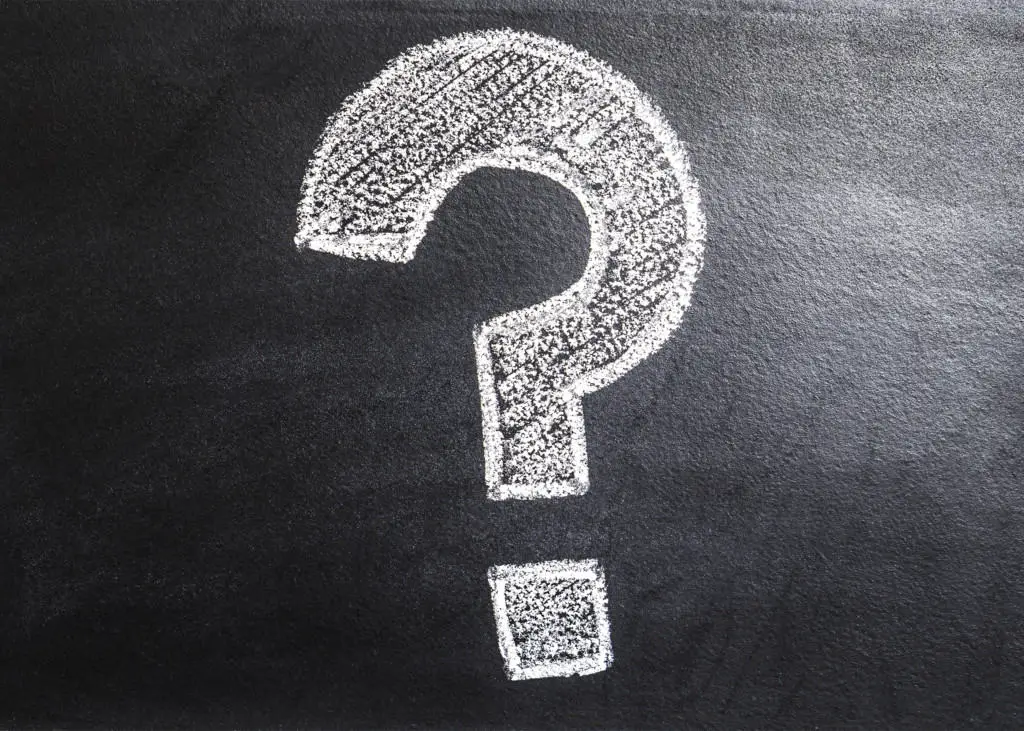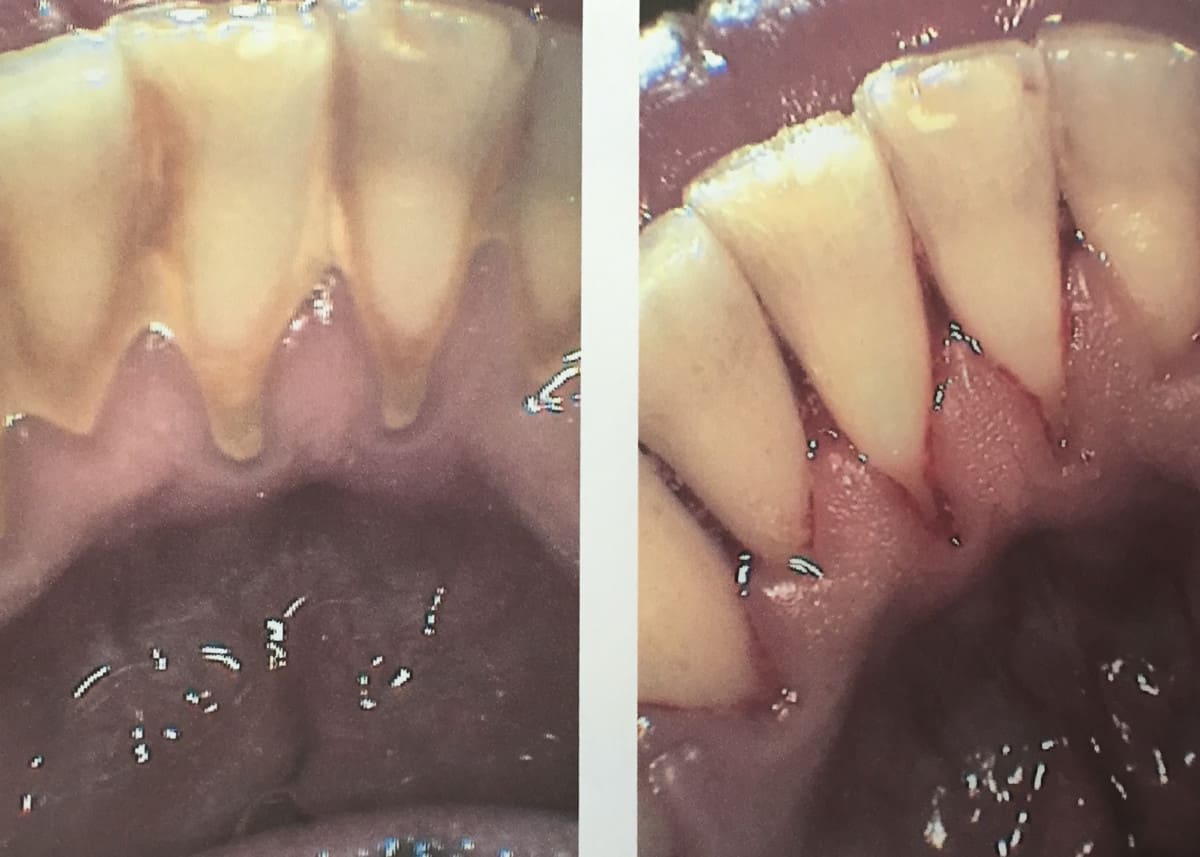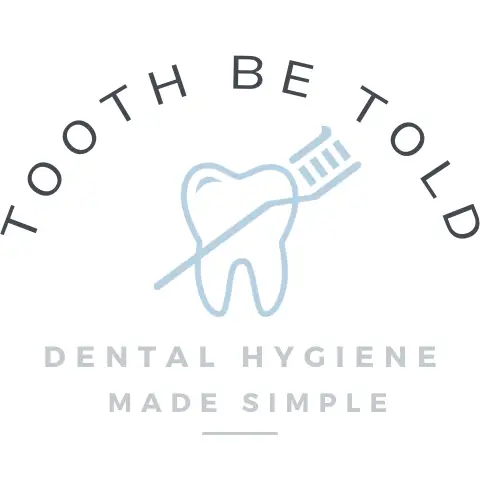
The big muscle in the middle of our mouths does quite a lot for us such as allowing us to speak, swallow and speak. And cleaning it is an important step in our oral health routine. But what is the best tool for the job? A toothbrush or a tongue scraper?
A tongue scraper is more effective and safer than using a toothbrush to clean the tongue. A tongue scraper removes more bacteria, food debris, and shedding cells, making the mouth healthier.
If you can’t get your hands on tongue scraper, brushing your tongue will still help remove bacteria and food debris. So don’t quit brushing your tongue just because you don’t have a scraper. If it’s available you will want to get a tongue scraper (see the end of this post for the one that I use).
Why you should be cleaning your tongue in the first place
The tongue has a lot of papillae (small projections of tissue) that house the taste buds, and has quite a bit of surface area! These papillae are kind of like a carpet, with food particles and bacteria getting trapped between them.
The bacteria that are found on the tongue can contribute to gum disease, cavities, bad breath and other infections. So keeping the numbers of them down will help prevent these conditions, and also improve bad breath.
Cleaning the tongue can actually make us taste better! When we clean our tongue, we remove the layer of dead tissue cells, bacteria and food particles, exposing more of the taste buds.
Brush vs Scrape. Which one is better?
The famous question. Which one is better? Well, both are better than doing nothing at all, however, one does have the upper hand. In fact, a scraper removes more, about 30% more!
Scraping the tongue is more effective than brushing it with our toothbrush, Why? It was specifically designed for the job. A toothbrush is designed for our teeth and gums, not our tongue!
And to revisit my carpet comment, imaging we’ve just dropped a pile of dirt on a carpet. We would want to scrape as much of that dirt as possible. Because if we just took a brush to it, the dirt would just get pushed and spread, not doing an effective job cleaning it.
I think that the best tool for the job is one that is specifically made for the job. Imagine trying to use a hammer on a screw, it may work, but using a screwdriver or drill will be more efficient and effective.
How often should you be cleaning your tongue?
Keeping our tongue clean is an important step in keeping our oral health in check. We should be cleaning our tongue at least 2 times a day.
I wrote a whole post on it and you can find it linked below 🙂
Related Post: How Often Should You Clean Your Tongue?
Metal vs. plastic tongue scrapers
I prefer metal tongue scrapers as they are more environmentally friendly, last longer and can be put through the dishwasher to disinfect.
The tongue scraper below is made out of medical-grade stainless steel and comes in a pack of two. You can read at the end of this post why this is my go-to tongue scraper that I recommend to my patients.
The plastic ones are still effective but they will have to be replaced more often. Over time the plastic can start to crack and chip which can hurt our tongue.
When using tongue scrapers we really need to be careful of how much pressure we are using when cleaning the tongue. Aggressive tongue cleaning over time can damage the papillae on the surface.
Tongue scrape before or after brushing?
After.
You will want to floss your teeth first, then brush (with only a pea-sized amount of toothpaste) and then tongue scrape.
There is a bit of controversy about when to floss – before or after brushing. And the answer is before.
When we floss before brushing our teeth we are clearing out all the food debris and plaque from in between our teeth. Then when we brush we are clearing away the loose plaque and food that has been dislodged and not completely removed by the floss. Also, the active ingredients in the toothpaste will now be able to flow between our teeth and actually work.
Flossing before brushing will prevent more cavities, keep the gums healthier and solidify the habit.
It has a mental component too. If I just brushed with a minty fresh toothpaste and my teeth are feeling smooth and clean… why the heck would I want to stick my fingers in my mouth and floss….. I don’t.
Flossing can get a little gross and messy, especially if we don’t do it on a regular basis. When we floss every day, the gums are healthy and we are not dislodging a huge amount of smelly old bacteria that’s been under our gums for weeks.
Look at the tongue
Our tongue should be a nice uniform light pink colour and have a flat surface. Tongue conditions that don’t go away in a couple of weeks should be looked at by a dental professional.
Some tongue conditions can be a clue to what is going on in our body’s such as;
- Vitamin and mineral deficiencies
- Pre-cancerous lesions, or cancer
- Bad breath associated with gum disease
I wrote a more extensive list of tongue conditions that will not go away with tongue cleaning and they can be found near the end of this article.
Are you trying to get rid of bad breath?
The tongue is definitely a hot spot for smelly bacteria, but there are other causes that we should be aware of.
Bad breath can be due to not drinking enough water, a medical condition, medications, gum disease, tonsil stones and/or a poor oral hygiene routine.
Having a dry mouth means that there is a decreased amount of saliva in our mouth.
Saliva plays an important role in oral health. It helps to cleanse the mouth, neutralize the acid, and rinse away dead cells to protect our teeth and gum tissue.
Certain medications can cause dry mouth, and make us more prone to bad breath. But also, dry mouth can contribute to gum disease.
When gum disease progresses and starts to break down the gum and bone tissue, a certain smell will be quite pungent.
Us in the dental world know exactly what it smells like and can pick it up from across the room. We call it “perio breath”.
By upping your oral hygiene routine but also having regular dental cleanings, you can reverse gingivitis, and slow down the gum disease, helping your breath improve.
Keep up regular dental appointments
Our mouths are a dark place with so many hiding places for issues to arise. Especially underneath the gumline!
Keeping up with regular dental hygiene appointments and check-ups along with good oral care at home will maintain your oral health. Issues will be caught early and most of them being prevented.

Prevention is the cheapest form of treatment. It may seem like an expensive thing to keep up with, having our teeth cleaned multiple times a year because we are seeing that money upfront. But when you’ve lost a tooth and need to replace it it will cost 1000’s of dollars on top of other issues that come along with it.
If oral health is neglected, it will lead to tooth loss, and even exasperate other medical conditions. This can end up being costly, especially when teeth are lost due to neglect.
Related Post: How Dental Hygienist’s Clean Your Teeth
These are the best products and what I use to clean my tongue and my teeth 🙂
- Medical Grade Stainless Steel Tongue Scraper (2 pack)
 Amazon link: I love this tongue scraper for many reasons. Those being 1. It can be cleaned and sterilized in the dishwasher. 2. Comes in a 2 pack 3. Environmentally friendly 4. Non-slip grip 5. Wide enough to have more coverage.
Amazon link: I love this tongue scraper for many reasons. Those being 1. It can be cleaned and sterilized in the dishwasher. 2. Comes in a 2 pack 3. Environmentally friendly 4. Non-slip grip 5. Wide enough to have more coverage. - Curaprox Hydrosonic Pro (Amazon link).
 This is the toothbrush that I use. The studies and evidence speak for itself, and so does my personal experience. I’ll never use another toothbrush as my main brush. Electric toothbrushes remove more plaque and motivate people to brush for longer. The small size of the head helps contour around the teeth and gums better than any other brush!
This is the toothbrush that I use. The studies and evidence speak for itself, and so does my personal experience. I’ll never use another toothbrush as my main brush. Electric toothbrushes remove more plaque and motivate people to brush for longer. The small size of the head helps contour around the teeth and gums better than any other brush!
Holly 🙂

